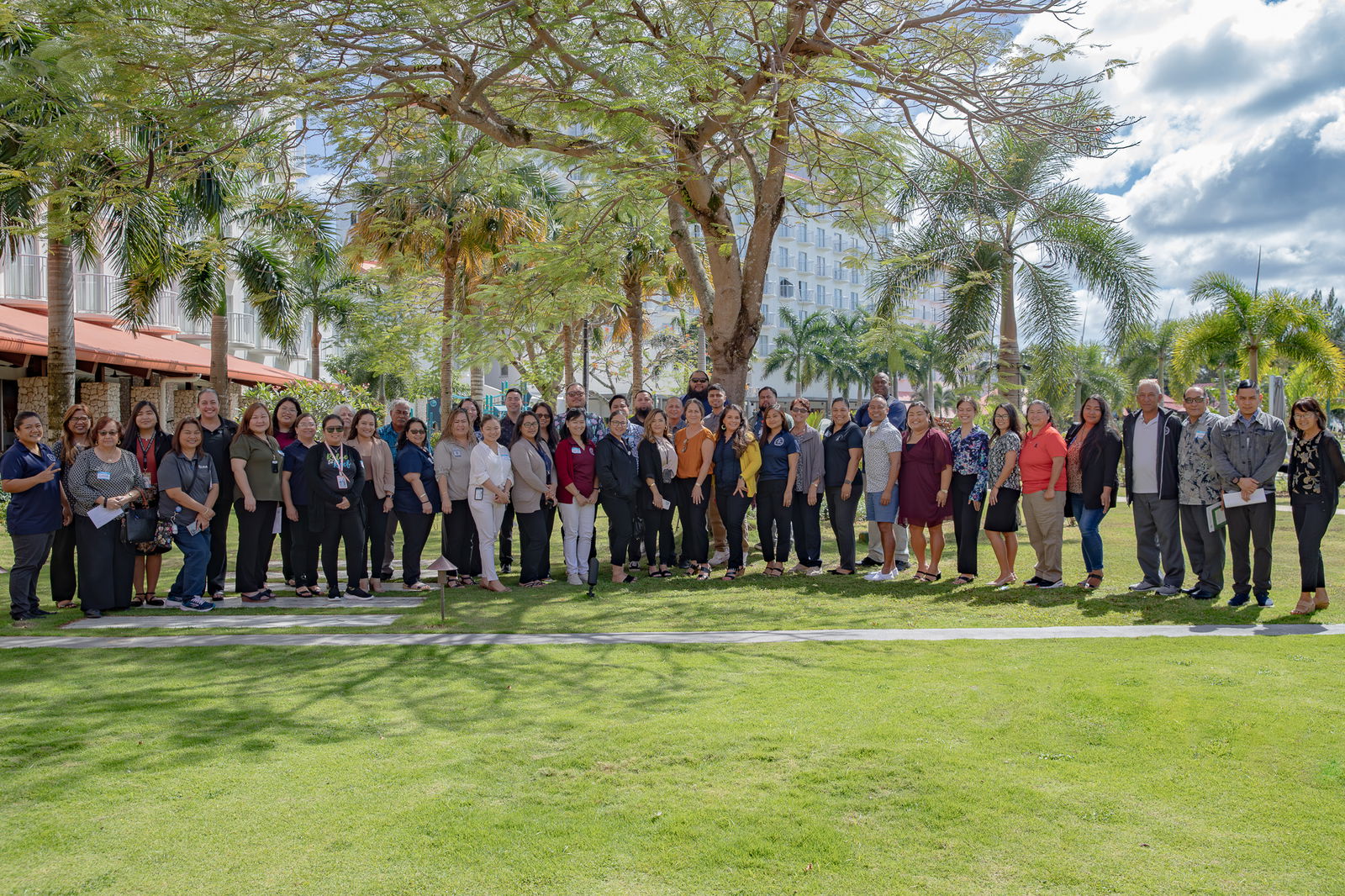
Participants of a community stakeholder meeting held Tuesday at the Crowne Plaza Resort Saipan pose for a photo. The gathering was held as part of a community health assessment facilitated by the Commonwealth Healthcare Corporation and RedStar International, in partnership with multiple community agencies and stakeholders.
(CHCC) — On Feb. 6, 2024, a community stakeholder meeting was facilitated at the Crowne Plaza as part of a larger community health assessment or CHA process being facilitated by the Commonwealth Healthcare Corporation and RedStar International, in partnership with multiple community agencies and stakeholders. The event was aimed to consult and engage stakeholders in the CHA process so that they are involved in the identification and selection of health priorities that will drive programs and interventions focused on improving the health and well-being of the communities and families that reside in the CNMI.
CHCC has gone through several organizational and governance changes over the last 10 years. However, with these changes, a few things remain constant, such as the importance of public health in our healthcare system and its role in advancing health for our community.
Unlike other U.S.-affiliated Pacific Islands and most states, the CNMI is unique in that CHCC is the local, state, and territorial health agency, comprised of both our main medical and public health services. This internal partnership is the basis of our healthcare system- meaning one cannot function without the other. While hospitals focus on the health of individual patients, public health focuses on the health of the entire CNMI population. This integrated model of clinical and public health allows our most valuable components of the healthcare system to be shared and streamlined, including our workforce and limited resources to further support accessible and trustworthy patient care and the provision of essential public health services for our CNMI community.
CHCC serves our community at three primary locations (Saipan, Tinian, and Rota). Tinian Health Center and Rota Health Center are satellite facilities of CHCC that provide primary health care, including health promotion and prevention activities in their areas. The corporation not only works with our local CNMI government but also with various national agencies under the U.S. Department of Health and Human Services and U.S Department of Agriculture as well as the World Health Organization to reach better health outcomes on a local, regional, national, and global level.
Through the Division of Public Health Services, CHCC offers a wide range of community health programs for women, adults, families, adolescents, and children with special healthcare needs. Some services include family planning, HIV/STD prevention and treatment, nicotine cessation, kidney health classes, immunization, diabetes self-management and support for parents of children with special healthcare needs through the Family-to-Family Health Information Center. Assistance to access services is also available for newborn screening and service coordination, breast and cervical screening, and transportation to health-related appointments.
Many public health programs and services are made accessible to the community through an integrated care model delivered by CHCC outpatient clinics.
The Family Planning program, for example, is accessible to the CNMI community through the CHCC Women’s Clinic, Tinian Health Center, Rota Health Center, or the Mobile Clinic. Programs like Nicotine Cessation or the Diabetes Self-Management Education classes are available to clinic patients through a referral from a primary care physician to Public Health.
Additional benefits of the CHA include:
• Improved organizational and community coordination and collaboration
• Increased knowledge about public health and the interconnectedness of activities
• Strengthened partnerships within state and local public health systems
• Identified strengths and weaknesses to address in quality improvement efforts
• Baselines on performance to use in preparing for accreditation
• Benchmarks for public health practice improvements
The successful completion of the CHA brings the CHCC closer to receive public health accreditation from the Public Health Accreditation Board. Among many advantages, accreditation helps stimulate quality improvement, improve accountability and transparency, strengthen the utilization of resources, and improve the capacity of the department to provide high quality programs and services.
For more information regarding CHCC public health programs and services, or to find out if you qualify, please visit our website at www.chcc.health or our social media pages.











